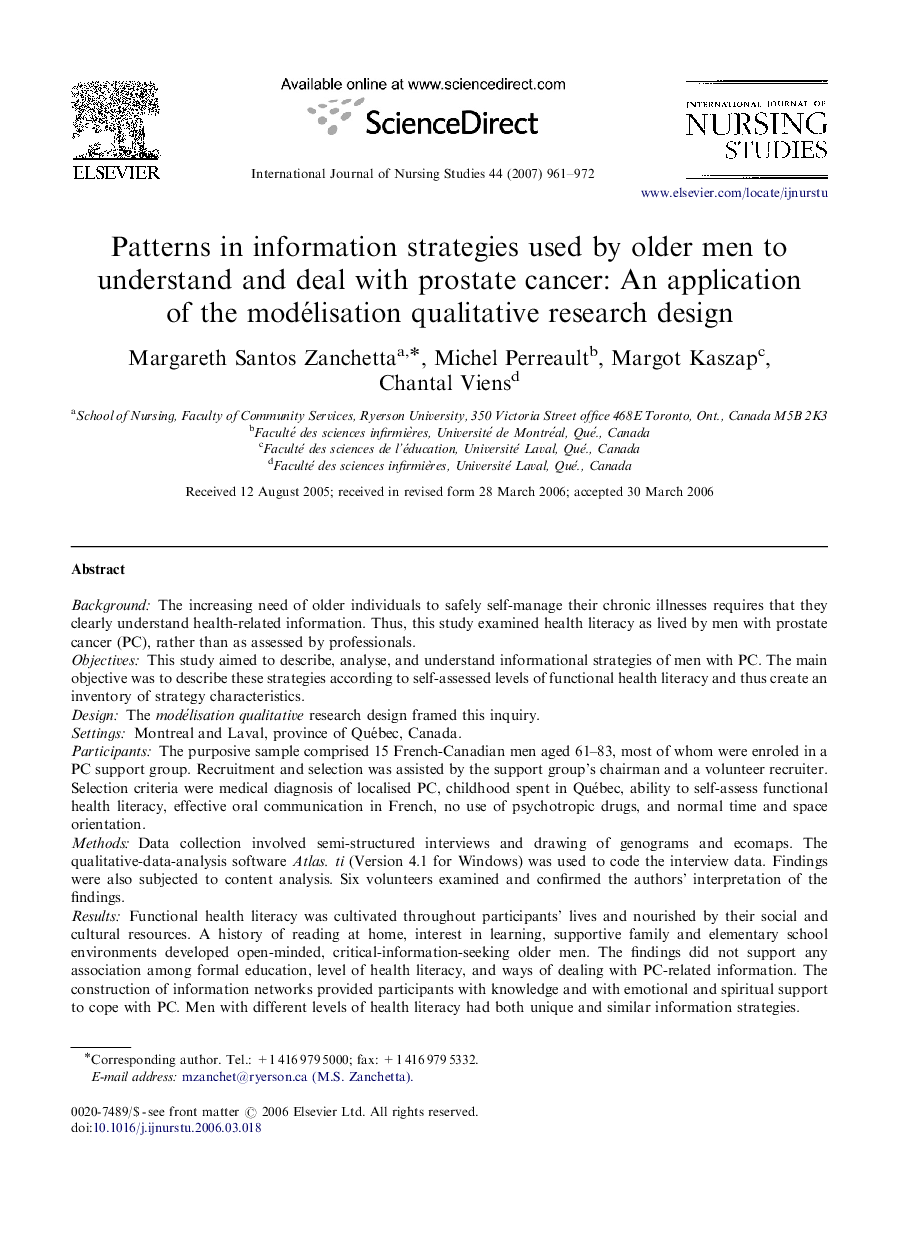| کد مقاله | کد نشریه | سال انتشار | مقاله انگلیسی | نسخه تمام متن |
|---|---|---|---|---|
| 1077398 | 1486615 | 2007 | 12 صفحه PDF | دانلود رایگان |

BackgroundThe increasing need of older individuals to safely self-manage their chronic illnesses requires that they clearly understand health-related information. Thus, this study examined health literacy as lived by men with prostate cancer (PC), rather than as assessed by professionals.ObjectivesThis study aimed to describe, analyse, and understand informational strategies of men with PC. The main objective was to describe these strategies according to self-assessed levels of functional health literacy and thus create an inventory of strategy characteristics.DesignThe modélisation qualitative research design framed this inquiry.SettingsMontreal and Laval, province of Québec, Canada.ParticipantsThe purposive sample comprised 15 French-Canadian men aged 61–83, most of whom were enroled in a PC support group. Recruitment and selection was assisted by the support group's chairman and a volunteer recruiter. Selection criteria were medical diagnosis of localised PC, childhood spent in Québec, ability to self-assess functional health literacy, effective oral communication in French, no use of psychotropic drugs, and normal time and space orientation.MethodsData collection involved semi-structured interviews and drawing of genograms and ecomaps. The qualitative-data-analysis software Atlas. ti (Version 4.1 for Windows) was used to code the interview data. Findings were also subjected to content analysis. Six volunteers examined and confirmed the authors’ interpretation of the findings.ResultsFunctional health literacy was cultivated throughout participants’ lives and nourished by their social and cultural resources. A history of reading at home, interest in learning, supportive family and elementary school environments developed open-minded, critical-information-seeking older men. The findings did not support any association among formal education, level of health literacy, and ways of dealing with PC-related information. The construction of information networks provided participants with knowledge and with emotional and spiritual support to cope with PC. Men with different levels of health literacy had both unique and similar information strategies.ConclusionsParticipants’ decisions to adopt specific information strategies were influenced by awareness of impacts of PC on men's lives, construction and maintenance of information networks, as well as participants’ critique of health information. Through their information strategies, participants regained decision-making power over their bodies and destinies, and then redefined their social roles.
Journal: International Journal of Nursing Studies - Volume 44, Issue 6, August 2007, Pages 961–972